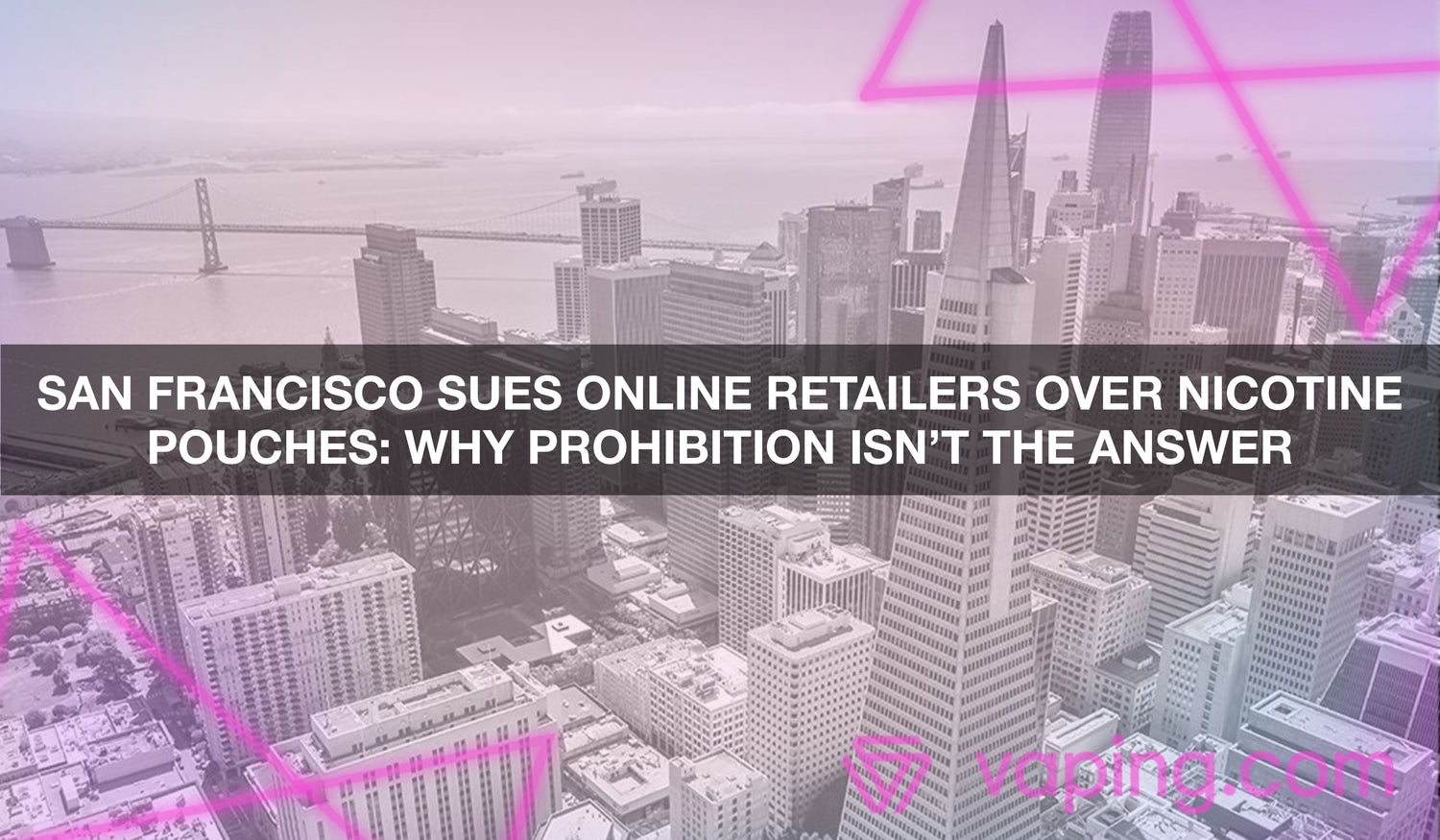Recently, San Francisco City Attorney David Chiu filed lawsuits against four online tobacco retailers—Rogue Holdings LLC, Swisher International Inc., Northern Scandinavia Inc., and Lucy Goods Inc.—for allegedly violating local bans on nicotine products. Chiu claims these companies are deliberately targeting young people by rebranding their flavored nicotine pouches to evade regulations. His goal? To protect youth from the harmful effects of nicotine. However, while the lawsuit is positioned as a step forward in public health, it also highlights the ongoing issue with prohibition-style tactics, which may cause more harm than good.
The Lawsuit and Its Impact on Harm Reduction
Chiu’s lawsuit aims to further tighten regulations on nicotine pouches—often marketed as alternatives to cigarettes and vapes. While protecting youth is essential, outright bans and it is interesting that a city once at the vanguard of harm reduction policies for illegal narcotics acts so aggressively when restricting nicotine alternatives. Their shortsighted prohibitionist policies have unintended consequences.
Products like nicotine pouches, which are marketed to adult smokers looking to quit, have been embraced in Sweden as crucial to their harm reduction public health policies. Nicotine alternatives are considered by many public health experts to be less harmful than traditional cigarettes, offering smokers a superior way to consume nicotine without the dangers of combustion and tar.

But by targeting these products in a blanket prohibition, we risk ignoring the adult smokers who rely on these alternatives. This kind of restriction can inadvertently drive these individuals back to smoking combustible cigarettes—the very behavior we want to minimize.
Prohibition Isn’t the Answer: The Case for Harm Reduction
Prohibition-style regulations aren’t new. The past few years have seen a wave of bans on flavored nicotine products across several U.S. cities, under the assumption that such products lead to higher rates of youth nicotine use. While these policies are well-intentioned, studies show that banning harm-reduction products can sometimes do more harm than good.
Nicotine use in general is at an all-time low among youth per the new NYTS data released by the CDC.

A Yale study conducted in 2021 found that bans on flavored nicotine products could actually lead to increased cigarette smoking among certain populations. The study showed that young people in areas with flavor bans were more likely to smoke cigarettes—ironically leading to more potentially worse health outcomes than if they had access to alternatives like nicotine pouches or e-cigarettes. Moreover, a 2019 study in JAMA Pediatrics found that cigarette sales increased in cities where vape and flavor bans were implemented.
Banning products doesn’t eliminate demand; it simply pushes consumers towards combustible cigarettes. Just as with alcohol prohibition in the 1920s, people will find ways to access the products they want, even if it means resorting to more harmful or illegal methods.
Ignoring Adults Who Benefit from Nicotine Alternatives
The lawsuit’s rhetoric also overlooks the critical role that products like nicotine pouches play for adult consumers. Many former smokers have successfully transitioned to using alternatives like nicotine pouches or e-cigarettes, which allow them to manage their nicotine cravings without the severe health risks associated with smoking.
It’s important to remember that these nicotine pouches are designed and marketed for adults who want to quit smoking. Adults, not teens, make up the majority of the user base for these products, and they should not be punished by overreaching bans. Rather than focusing solely on youth prevention, policies should also consider the millions of adults who rely on nicotine alternatives.
The Flawed Focus on Marketing
While some argue that bright colors and flavors are designed to attract young users, these same characteristics are also what make nicotine alternatives appealing to adult smokers. Flavors play a significant role in helping adults transition away from cigarettes, making their quit journey less harsh and more sustainable. Restricting flavors not only makes quitting harder for adults but could also lead to reduced public health outcomes in the long run.
Instead of blanket bans, a more balanced approach should involve better enforcement of age restrictions and educational campaigns aimed at preventing youth use. This would help achieve the shared goal of protecting children from nicotine without undermining the legitimate need for adult-focused harm-reduction products.
Conclusion: Finding a Balanced Approach
San Francisco’s lawsuit against online nicotine retailers underscores the tension between youth prevention and harm reduction for adults. Protecting children from nicotine is essential, but prohibition is not the answer. As studies show, banning flavored nicotine products often leads to unintended consequences, such as increased cigarette smoking, which is far more harmful to public health.
Back in October of 2019 the FDA granted modified risk orders for eight General brand snus smokeless tobacco products to be sold in the U.S., stating the “FDA concludes completely switching from cigarettes to these authorized products lowers certain health risks.”
A balanced approach—one that protects youth while ensuring adult smokers have access to less harmful alternatives—is the real path forward. By focusing on stricter enforcement of existing laws, rather than outright prohibition, we can protect public health while also recognizing the role nicotine alternatives play in reducing smoking rates among adults.
In the end, we must remember that harm reduction is not about punishing smokers, but about offering them science-backed alternatives to reduce their risks.






Leave a comment
This site is protected by hCaptcha and the hCaptcha Privacy Policy and Terms of Service apply.